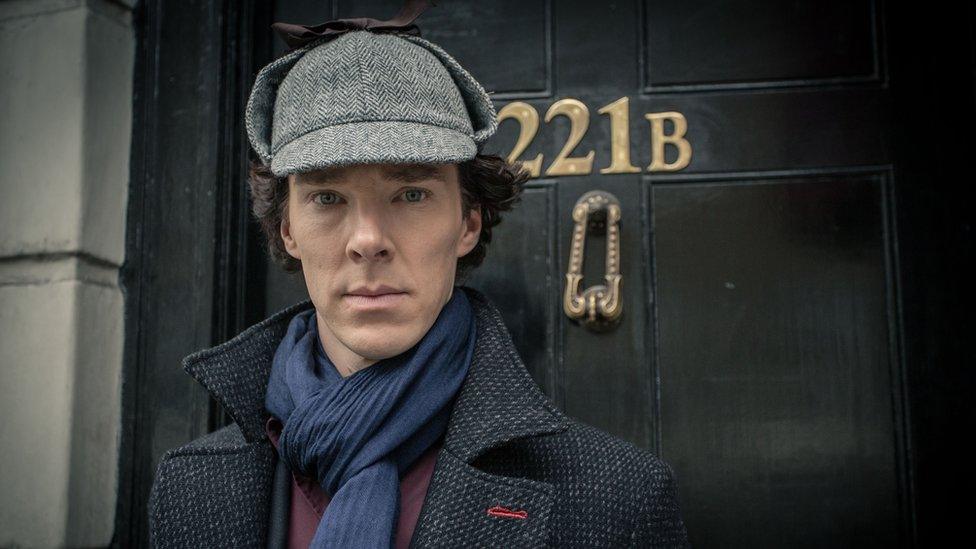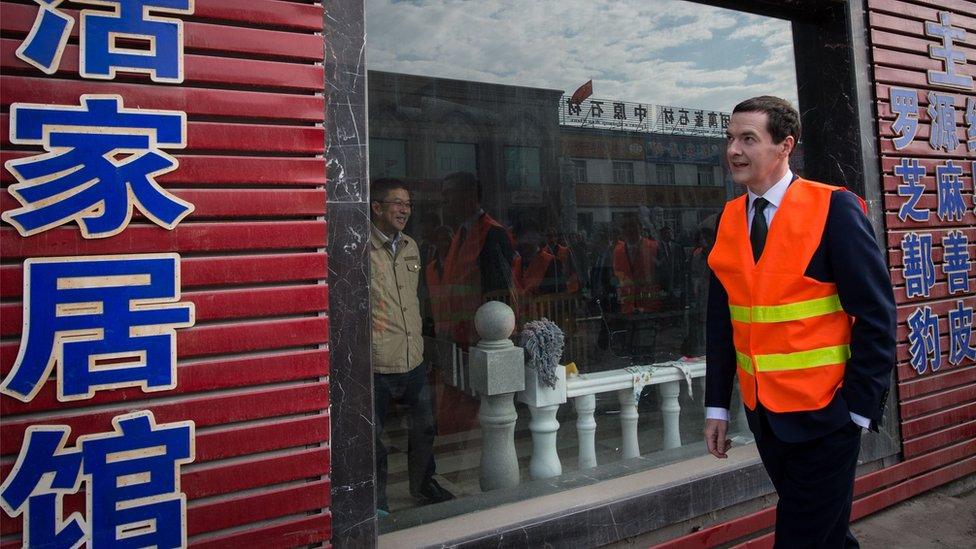Sherlock and football: Why the Chinese visit to the UK matters
- Published

Xi Jinping may not get an answer for when the next series of Sherlock starts - but there are plenty of other topics on the agenda
It's what the British Prime Minister David Cameron has called "the golden era of UK-China relations".
London is rolling out the red carpet for Chinese President Xi Jinping, who arrives on Monday for his first state visit to the UK.
On one hand, the visit has already generated a buzz in the UK, with column inches focusing on how Britain should get the best out of the bilateral relations.
But there is equal excitement in China, with a detailed official programme published on mainstream media and online, alongside analysis, comments and pictures.
On Weibo, the Chinese micro-blogging website, the visit is one of the top trending topics. People are sharing pictures of past visits, tips on how to be a gentleman, good manners - and are asking when the next series of Sherlock will come out.
(Answer: there will be a special episode broadcast in the UK at Christmas.)
BBC Chinese spoke to a few people in Beijing, and their expectations include better visa arrangements for visiting the UK, lifting the ban on Facebook, YouTube and Gmail in China, and more cultural exchanges.
Such is the interest, China's ambassador to the UK, Liu Xiaoming, has even taken the extraordinary step of holding special briefings for journalists and appearing on TV programmes.
Ambassador Liu Xiaoming: "The president... is not here for a debate on human rights"
One might ask: Why such excitement?
In an interview with Reuters published on the eve of his visit, President Xi praised the UK for its willingness to be China's closest partner in the West.
Xi believes that this is "a visionary and strategic choice that fully meets Britain's own long term interest".
At a time when the China-US relationship is fraught with difficulties, the UK is increasingly seen in China as an important balance to that relationship, and a gateway to a better China-EU relationship.
There are plenty of signals being given to the Chinese leadership that the British government is determined to make its own decisions about what is best for itself.

British Chancellor of the Exchequer George Osborne visited Xinjiang in September despite criticism from rights groups
The UK was the first Western country to join the China-led Asia Infrastructure and Investment Bank, despite scepticism from the US, and the British Chancellor of the Exchequer, George Osborne, visited the restive Xinjiang region during last month's trip to China, in spite of criticism from human rights organisations.
"International reaction to China's rise is divided between those who think it's an opportunity and those who think it's a challenge," Feng Zhongping, deputy director of the Chinese Institute of Contemporary International Relations, told BBC Chinese. "The UK government obviously belongs to the former."
Can he kick it?
China is ready to strike while the iron is hot and hopes to lay its hands on big British infrastructure projects.
After the announcement by Mr Osborne that the British government would offer a £2bn ($3bn) guarantee to secure the new Hinkley Point nuclear plant and Chinese investment towards it, negotiations have made "substantial progress", according to the Chinese ambassador.
China also hopes to get involved in the HS2 high-speed rail project.
In the field of finance, there is also potential for closer ties - this after London became the first Western city to see government bonds issued in the Chinese currency, the renminbi.
There will be agreements on the creative industry, education and cultural exchange, all areas in which the Chinese consider Britain to be in an advanced position.
And don´t forget football.
President Xi told Reuters he hopes China´s football team will one day be one of the best in the world. He hopes China and the UK will work together to train players, coaches and referees.
President Xi will visit Manchester City football club on his last day in the UK, and everybody will be watching - will he kick a ball?